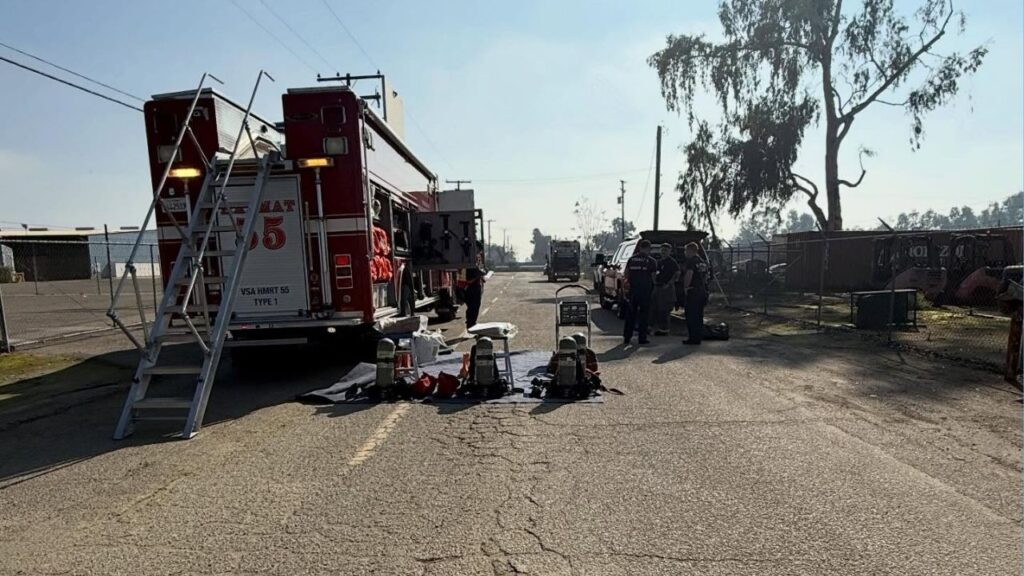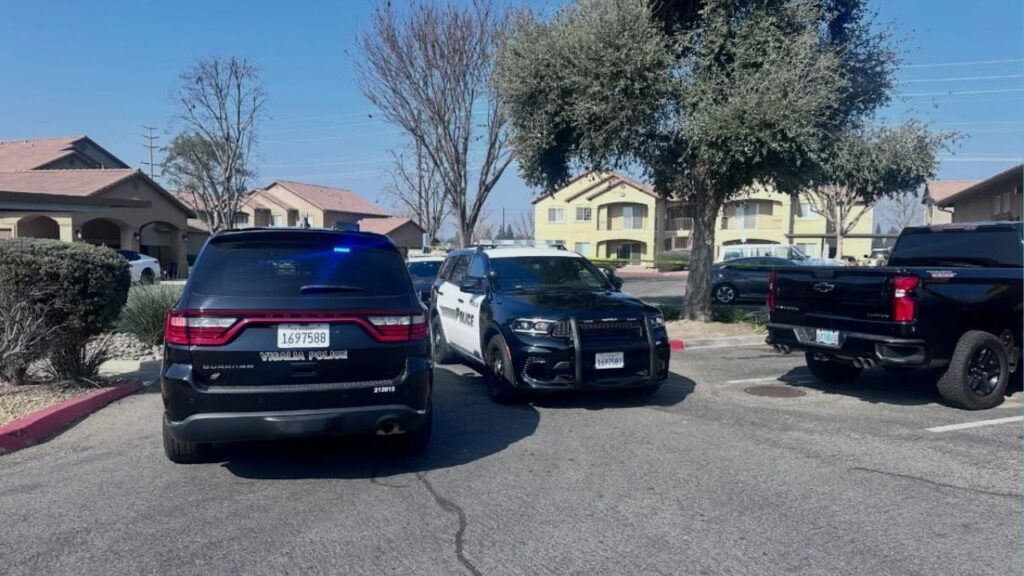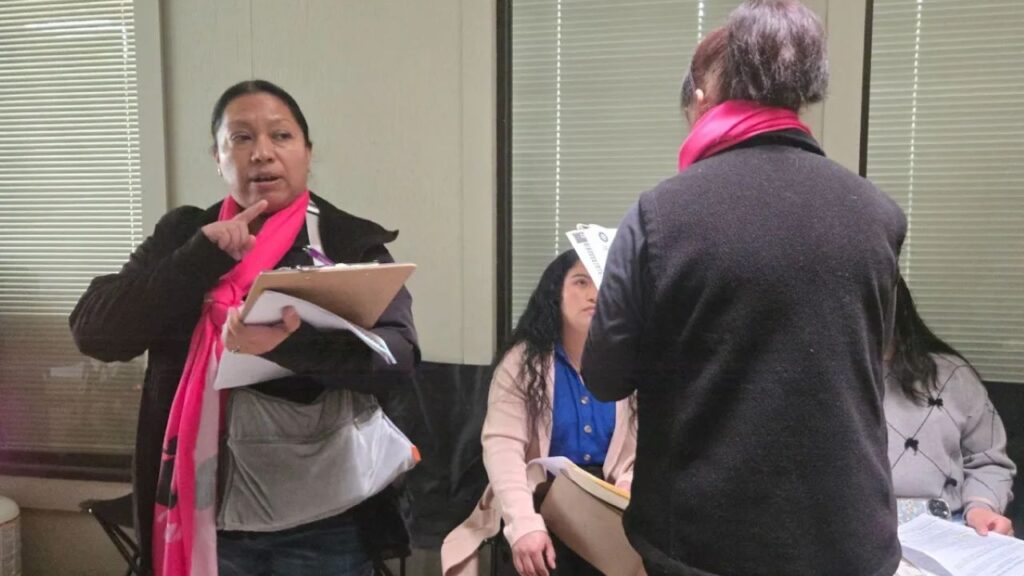A proposal to fix California’s insurance crisis would require the insurance department to process requests from insurers more quickly. But that could produce rate increases for consumers. (AP/Marcio Jose Sanchez)

- Newsom proposes legislation to expedite insurance premium rate reviews.
- Over 45,000 homeowners have turned to the FAIR Plan due to insurance issues.
- The proposed bill would tighten the timeline of the review process to 120 days.
Share
|
Getting your Trinity Audio player ready...
|
Gov. Gavin Newsom has proposed legislation to speed up insurance premium rate reviews as he and the Insurance Department try to fix the state’s battered insurance market.

Levi Sumagaysay
CalMatters
Last fall, Newsom issued an executive order tasking Insurance Commissioner Ricardo Lara with fixing home and fire insurance availability and affordability as insurers — citing rising wildfire risk and pandemic-induced inflation, and complaining about having to wait too long to get their requests for rate increases approved by the state — were canceling homeowner policies and halting the writing of new ones in California.
Homeowners continue to have trouble obtaining or hanging onto affordable insurance. From September through March, more than 45,000 of them have had to turn to the FAIR Plan, which is supposed to be an insurer of last resort for fire insurance. The plan provides limited coverage at high prices, so some homeowners have chosen to forgo fire insurance because they can’t afford their premiums, which in some cases have tripled or more.
Lara has been rolling out a plan to address the insurance market problems, which is expected to take effect by the end of the year. But Newsom said at a press conference earlier this month that “We’ve got to move it. We’ve just got to do more.”
Related Story: Newsom Promised 1,200 Tiny Homes for Homeless Californians. How Many Are Being ...
Proposed Legislation to Expedite Insurance Rate Reviews
Hence the bill he released Tuesday night, which is tied to the state budget and may not get as much scrutiny as other bills this late in the legislative session, needs only a simple majority vote in the state Legislature and would take effect immediately after the governor signs it.
It builds on the part of Lara’s plan that makes changes to the process of approving insurance rate increases. The bill would add language to the insurance code that tightens the timeline of the review process, giving the Insurance Department up to 120 days — an initial 60 days, with options for two 30-day extensions — to respond to insurer rate-review requests with a newly required estimated rate. At that point, unless there is an objection by a consumer or consumer representative, the insurance companies can accept the estimated rate and apply it.
Currently the law says the Insurance Department must act on rate filings within 60 days without a hearing or 180 days with a hearing. But Michael Soller, spokesperson for the department, said that as of February, the average time for homeowner filings was 196 days.
“By enacting this important part of our strategy in statute, the Legislature can help us meet the urgency of the moment,” Lara said in a statement after the governor released the text of the bill.
“This proposal requires the Department of Insurance to modernize and streamline its rate application process to get back to the expedited timelines outlined in Prop. 103,” said Alex Stack, a spokesperson for the governor.
Related Story: Your Guide to California’s Minimum Wage: Surviving in an Expensive State
Consumer Advocacy Group’s Concerns Over the New Bill
Carmen Balber, executive director of the advocacy group Consumer Watchdog, said the tightened timeline for the state to respond with a rate estimate “seriously hamstrings oversight by the (insurance) department overall” as well as the role of intervenors such as her group. She said because the bill requires the Insurance Department to provide an estimated rate within 120 days, insurance companies could essentially be guaranteed rate increases three times a year — of less than 7% each time without triggering the risk of a hearing under Proposition 103, California’s insurance law that requires the state to approve rates — regardless of whether they can justify them.
The strict timeline “severely limits the information the department and intervenors can obtain” from insurers, Balber said, adding that she hopes lawmakers will “fix it.”
The chair of the Senate’s insurance committee, Sen. Susan Rubio, on Wednesday said she supports the bill. “I could not be more pleased with (the governor’s) proposal to help reduce unnecessary red tape,” the Los Angeles Democrat wrote in an emailed statement.
State lawmakers have been under pressure from their constituents to do something about the insurance market, with some of them proposing legislation to try to ensure individual and community efforts to help prevent wildfires count toward insurance affordability. The office of Assemblymember Lisa Calderon, chair of the Assembly’s insurance committee and another Los Angeles Democrat, did not respond to a request for comment on the governor’s proposal in time for publication.
The insurance industry is optimistic that the bill will speed things up.
Related Story: Warning: Pay Special Attention to California’s November Ballot Measures
Rex Frazier, president of the Personal Insurance Federation of California, said insurance companies that submit rate increase requests typically don’t hear back from the Insurance Department for four or five months. “At least now, they have to show their work by 60 days,” Frazier said. “The proposal provides more clarity and accountability to all parties involved in the process.”
Denni Ritter, vice president for state government relations for another industry group, the American Property Casualty Insurance Association, said the group was still evaluating the text of the bill. “Streamlining the rate review process will help increase consumer access to coverage by ensuring rates adequately reflect risk and consumer claims,” she said.
Lara’s overall plan, which he has dubbed the Sustainable Insurance Strategy, also includes allowing insurance companies to use catastrophe modeling; letting insurers incorporate reinsurance costs in their rates; and improving the FAIR Plan, including by requiring increased insurance coverage.
About the Author
Levi Sumagaysay covers the California economy for CalMatters with an eye on accountability and equity. She reports on the insurance market, taxes and anything that affects the state’s residents, labor force and economy.
About CalMatters
CalMatters is a nonprofit, nonpartisan newsroom committed to explaining California policy and politics.
RELATED TOPICS:
Categories

Canada Ready to Ice out American Foes in Latest Chapter of Rivalry


















